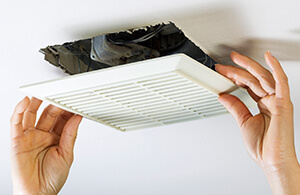On this website, some posts contain affiliate links, which means that if you buy a product using my link, I may earn a commission.
To improve air quality in your home naturally, increase ventilation, use beeswax candles, salt lamps, activated charcoal, and house plants, utilize essential oils, and be aware of your air conditioners and air purifiers. Additionally, you can improve indoor air quality by practicing source control, improving ventilation, and using air cleaners.
Another way to enhance air quality is by reducing car usage, keeping your vehicle in good repair, turning off the engine when idle, and avoiding burning trash. You can also improve indoor air quality without an air purifier by improving ventilation and letting clean outdoor air flow in.
Lastly, changing AC filters, cleaning rugs and carpets, controlling humidity, and using cooking vents can also improve indoor air quality.


Credit: www.petro.com
Importance Of Air Quality In The Home
Having clean air in your home is crucial for maintaining good health and overall well-being. Unfortunately, many people are unaware of the impact that poor air quality can have on their health. By understanding the significance of clean air indoors, you can take steps to improve the air quality in your home and create a healthier living environment for you and your family.
Understanding The Significance Of Clean Air Indoors
Poor air quality can significantly impact the overall comfort and health of your home. Indoor air pollution can be caused by various factors such as dust, pet dander, mold, volatile organic compounds (VOCs) from cleaning products and furniture, and even outdoor pollutants that can make their way inside. All of these pollutants can contribute to a wide range of health issues, including allergies, asthma, respiratory infections, and even more serious conditions such as lung cancer.
Ensuring that the air you breathe indoors is clean is essential for maintaining good health and preventing these health problems. Clean air can also improve sleep quality, enhance cognitive function, and boost overall well-being.
Impact Of Poor Air Quality On Health And Well-being
Exposure to poor air quality indoors can have a detrimental effect on your health and well-being. Breathing in pollutants can irritate your respiratory system, cause allergies, trigger asthma attacks, and even lead to long-term lung conditions.
Additionally, poor air quality can affect your mental and emotional well-being. Studies have shown that exposure to indoor air pollution can lead to symptoms such as fatigue, difficulty concentrating, headaches, and irritability. It can also exacerbate existing mental health conditions, such as anxiety and depression.
Therefore, it is crucial to take steps to improve the air quality in your home and create a healthier living space for you and your family.
Identifying Common Indoor Air Pollutants
Improve the air quality in your home by identifying common indoor air pollutants. Increase ventilation, use beeswax candles, salt lamps, activated charcoal, house plants, essential oils, and know your air conditioners and air purifiers to naturally purify the air. Additionally, implement source control, improved ventilation, and air cleaners to further improve indoor air quality.
Recognizing The Sources Of Indoor Air Pollution
Indoor air pollution can often be caused by various sources within your home. It is important to be aware of these sources in order to effectively improve the air quality in your home. By recognizing and addressing these sources, you can create a healthier environment for you and your family. Here are some common sources of indoor air pollution to be aware of:Common Allergens And Contaminants To Be Aware Of
Dust mites: These microscopic creatures thrive in warm and humid environments. They can trigger allergic reactions and asthma symptoms in sensitive individuals. It is important to regularly clean and vacuum your home to minimize dust mite presence. 2. Pollen: Pollen from outdoor plants can easily make its way indoors, especially during allergy season. Keep windows and doors closed during peak pollen times and regularly clean your home to reduce the amount of pollen inside. 3. Mold and mildew: Moisture and humidity can lead to the growth of mold and mildew, which can cause respiratory issues and allergic reactions. Regularly inspect and clean areas prone to moisture, such as bathrooms and basements, and use dehumidifiers when necessary. 4. Volatile Organic Compounds (VOCs): VOCs are chemicals found in many household products, such as paints, cleaning agents, and furniture. These compounds can be released into the air and contribute to poor indoor air quality. Opt for natural, low-VOC alternatives when possible. 5. Tobacco smoke: Secondhand smoke is a significant source of indoor air pollution and can have severe health effects. Establish a smoke-free environment in your home to protect yourself and your loved ones. 6. Radon: Radon is a naturally occurring gas that can seep into your home through cracks in the foundation. It is odorless and colorless, making it difficult to detect without proper testing. Radon is a leading cause of lung cancer, so it is essential to test your home for radon and take necessary measures to mitigate its presence. 7. Chemical cleaning products: Common household cleaning products are often filled with harsh chemicals that can release harmful fumes into the air. Consider using natural and non-toxic cleaning alternatives to minimize exposure to these chemicals. 8. Pet dander: If you have pets, their dander (skin flakes), saliva, and urine can contribute to indoor air pollution. Regular grooming, washing bedding, and vacuuming can help reduce pet dander in your home. By being aware of these common allergens and contaminants, you can take proactive steps to improve and maintain good indoor air quality. Regular cleaning, proper ventilation, and using natural alternatives can go a long way in creating a healthier environment for you and your family.Practical Tips For Improving Indoor Air Quality
Looking to improve the air quality in your home? Increase ventilation, use beeswax candles, salt lamps, activated charcoal, and house plants, and avoid dry dusting. Another option is to improve indoor air quality by practicing source control, improving ventilation, and using air cleaners.
Increasing Ventilation For Better Airflow
One of the most effective ways to improve indoor air quality is by increasing ventilation. Proper ventilation helps in circulating fresh air throughout the house, reducing the concentration of indoor air pollutants. Here are some practical tips to enhance airflow:
- Open windows and doors regularly to let fresh air in.
- Use exhaust fans in kitchens and bathrooms to remove pollutants and odors.
- Install air vents and ducts to allow air to flow freely between rooms.
Using Natural Air Purifiers Such As Plants And Beeswax Candles
Natural air purifiers can effectively reduce indoor air pollutants and improve the overall air quality in your home. Consider incorporating the following natural air purifiers:
- Indoor plants: Plants like peace lilies, common ivy, spider plants, dracaena trifasciata, weeping figs, and rubber figs are known for their air-purifying properties.
- Beeswax candles: Beeswax candles release negative ions, which can help neutralize indoor air pollutants and improve the air quality.
Utilizing Activated Charcoal And Salt Lamps
Activated charcoal and salt lamps are another natural way to improve indoor air quality. These items can help eliminate toxins and impurities from the air:
- Activated charcoal: Place activated charcoal in bowls around your home to absorb odors and harmful substances.
- Salt lamps: Salt lamps emit negative ions, which can help cleanse and purify the air.
The Role Of Essential Oils In Purifying The Air
Essential oils are known for their pleasant aroma, but they can also be used to purify the air in your home. Certain essential oils have antimicrobial and antifungal properties that can help eliminate airborne bacteria and improve indoor air quality. Consider using essential oils such as:
- Lavender
- Tea tree
- Eucalyptus
- Peppermint
Understanding Air Conditioners And Air Purifiers
When it comes to improving indoor air quality, it’s essential to understand how air conditioners and air purifiers work. Both these appliances can significantly contribute to cleaner and healthier air. Consider the following:
- Air conditioners: Regularly clean and replace air filters in your air conditioning system to ensure they effectively capture airborne particles.
- Air purifiers: Invest in a high-quality air purifier with a HEPA filter to remove allergens, dust, and other contaminants from the air.
By implementing these practical tips, you can enhance the air quality in your home and create a healthier living environment for you and your family.
Strategies For Controlling Indoor Air Pollution
Indoor air pollution can have a detrimental impact on our health, causing respiratory issues, allergies, and even long-term health conditions. To improve the air quality in your home and reduce the risk of exposure to pollutants, it is essential to implement effective strategies for controlling indoor air pollution. In this article, we will explore three key strategies that can make a significant difference in maintaining clean and healthy indoor air:
Source Control To Prevent Pollutants From Entering The Home
One of the most effective ways to improve air quality is by implementing source control measures. By preventing pollutants from entering our homes in the first place, we can significantly reduce the levels of contaminants in the indoor air. Here are some practical ways to implement source control:
- Properly seal cracks and gaps in windows, doors, and walls to minimize outdoor air pollution infiltration.
- Use doormats at all entry points to trap dirt, dust, and pollutants from outside.
- Establish a no-smoking policy inside the house to avoid the release of harmful toxins.
- Store household chemicals, paints, and solvents in tightly sealed containers to prevent their fumes from polluting the indoor air.
- Regularly clean and vacuum the house to remove dirt, dust mites, and other allergens.
Improving Ventilation To Enhance Air Circulation
Proper ventilation plays a crucial role in maintaining good indoor air quality. It helps to remove stale air, pollutants, and excess moisture, replacing them with fresh, clean air from the outdoors. Here are some effective methods to improve ventilation in your home:
- Open windows and doors to allow for natural airflow, especially during moderate weather conditions.
- Install exhaust fans in kitchens and bathrooms to remove odors, steam, and pollutants.
- Consider using mechanical ventilation systems, such as whole-house ventilation or energy recovery ventilators, to ensure continuous fresh air circulation.
- Regularly clean and maintain ventilation systems, including air ducts, filters, and fans, to prevent the buildup of dust and allergens.
The Efficacy Of Air Cleaners In Removing Pollutants
Air cleaners, also known as air purifiers, are devices designed to filter out pollutants and improve indoor air quality. While they can be effective in reducing the levels of certain contaminants, it’s essential to understand their limitations and choose the right air cleaner for your specific needs. Here are some key points to consider:
- HEPA (High-Efficiency Particulate Air) filters are highly effective in removing fine particles, such as dust, pollen, pet dander, and mold spores.
- Activated carbon filters are efficient in removing odors, volatile organic compounds (VOCs), and some chemicals.
- Air cleaners with UV-C light technology can help neutralize bacteria, viruses, and other microorganisms.
- It’s important to properly size and maintain air cleaners according to the manufacturer’s instructions to ensure optimal effectiveness.
By implementing source control measures, improving ventilation, and using appropriate air cleaners, you can significantly improve the air quality in your home. Remember to regularly monitor and maintain these strategies to ensure ongoing effectiveness in controlling indoor air pollution.
Additional Measures To Enhance Indoor Air Quality
Improving the air quality in your home is essential for creating a healthy and comfortable living environment. While implementing the basic strategies of source control, improved ventilation, and air cleaners can significantly contribute to better indoor air quality, there are also additional measures you can take to enhance the air quality further. Let’s explore some of these measures below.
Tips For Reducing Car Emissions And Gas Consumption
Reducing car emissions and minimizing gas consumption are crucial steps you can take to improve air quality, not just within your home but also in your local community. Here are a few tips to help you achieve this:
- First and foremost, try to drive your car less. Consider walking or biking for short trips or carpooling with friends and neighbors.
- When you do need to use your car, make sure to reduce your gas consumption by choosing the most efficient route and avoiding unnecessary idling.
Proper Car Maintenance For Minimizing Vehicle Pollution
Maintaining your car properly is crucial for minimizing vehicle pollution and ensuring it runs efficiently. Here are some essential car maintenance tips:
- Regularly check and replace your air filters to ensure efficient combustion and reduce emissions.
- Keep your tires properly inflated to improve fuel efficiency and reduce pollution.
- Get your car serviced regularly to address any mechanical issues that may contribute to increased emissions.
Environment-friendly Practices Like Tree Planting And Waste Management
Adopting environment-friendly practices is not only beneficial for the planet but can also help enhance the air quality in your home. Consider implementing the following measures:
- Planting trees around your home can help filter pollutants from the air and provide a source of fresh oxygen.
- Proper waste management, including recycling and composting, can reduce the release of harmful gases and toxins into the atmosphere.
By taking these additional measures to enhance indoor air quality, you can create a healthier living environment for you and your family. Remember, every small step counts when it comes to improving the air we breathe.
Frequently Asked Questions Of How To Improve Air Quality In Home
How Do I Naturally Purify The Air In My House?
To naturally purify the air in your house, increase ventilation, use beeswax candles, a salt lamp, activated charcoal, and house plants. Essential oils can also help, but be aware of your air conditioners and air purifiers. Avoid dry dusting as well.
What Are 3 Strategies To Improve Indoor Air Quality?
To improve indoor air quality, you can: 1. Increase ventilation by opening windows and doors to allow fresh air in. 2. Use natural purifiers like beeswax candles, salt lamps, activated charcoal, house plants, and essential oils. 3. Avoid dry dusting and keep your home clean to reduce dust and allergens in the air.
What Are 5 Ways To Improve Air Quality?
Improve air quality in your home naturally with these methods: increase ventilation, use beeswax candles or a salt lamp, incorporate house plants, utilize activated charcoal or essential oils, and be mindful of air conditioners and purifiers. Keep your car in good condition, reduce gas consumption, and plant trees to improve air quality outdoors.
Improve indoor air quality without an air purifier by improving ventilation and keeping your home clean.
How Can I Improve My Indoor Air Quality Without An Air Purifier?
Improve ventilation by opening windows and doors to let clean air in. Use beeswax candles, salt lamps, activated charcoal, or house plants to naturally purify the air. Avoid dry dusting and use essential oils. Keep your car in good repair, reduce gas consumption, and fuel your vehicle in early or late hours.
Change AC filters, clean carpets, and control humidity in your home. Practice good indoor hygiene by keeping your house clean.
Conclusion
Improving the air quality in your home is essential for your overall wellbeing. By following simple steps such as increasing ventilation, using beeswax candles, salt lamps, and houseplants, you can naturally purify the air. It’s also important to know about your air conditioners and air purifiers.
Additionally, reducing gas consumption, keeping your car in good repair, and planting trees can contribute to improving air quality. Remember, maintaining a clean house and controlling humidity are also crucial. By implementing these strategies, you can enjoy fresh and clean air in your home.
On this website, some posts contain affiliate links, which means that if you buy a product using my link, I may earn a commission.

